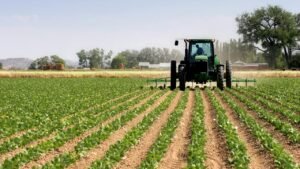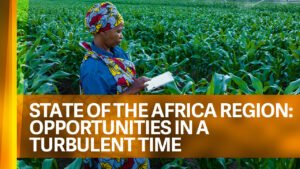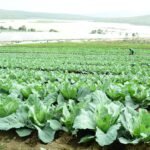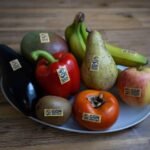Eleven Kenyan mid-career women are amongst 49 African women selected as Fellows in the first cohort of The Gender Responsive Agriculture Systems Policy (GRASP) Fellowship, an initiative of African Women in Agricultural Research and Development (AWARD) funded by the United States Agency for International Development (USAID). This new competitive career development Fellowship is targeting African women in agri-food policies who can support the implementation of gender-responsive agricultural policies in Africa.
By Murimi Gitari, April 05, 2023, Millions of women around the world are essential to the production of the world’s food and resources — yet they are often underpaid or forced to work in unsafe or unfair conditions. As such, effective policies are critical if research innovations are to provide gender-inclusive, sustainable solutions which allow Africa to develop equitable agri-food systems capable of feeding its growing population.
Drawn from diverse organizations including the private sector, non-governmental organizations, and government agencies, the 49 AWARD Policy Fellows hail from six African anglophone countries (Ghana, Kenya, Malawi, Nigeria, Uganda, and Zambia). The Kenyan women, and others selected for the GRASP Fellowship, are set to participate in a series of interventions, including leadership and mentoring training, designed to enable them to become more effective policy practitioners.
A pressing need for effective policy
A decade of rapid economic growth has resulted in Kenya recently acquiring lower-middle-income status. However, increased wealth has not benefited all Kenyans equally. Over one third of the population still lives under the international poverty line and social, economic and gender disparities remain.
Access to adequate quantities of nutritious food remains a challenge for many, especially in arid and semi-arid regions, which make up 80 percent of the country’s land area, and malnutrition remains unacceptably high. Agriculture remains the main economic driver but is very vulnerable to climate shocks, including unpredictable rainfall and recurring droughts. Inefficiencies in food systems result in high prices and insufficient market supplies, limiting the availability of, and access to, food.
To address these concerns, effective policies are critical yet, through their work, the Fellows see first-hand how policy efficacy is being hindered. For instance, as GRASP Fellow Beatrice Muriithi of the International Centre of Insect Physiology and Ecology (icipe) notes, “I’ve previously worked with other scientists to develop innovations that have the potential to empower women and address gender issues. What has been lacking, however, is their inclusion in policy.”
Laureen Wesonga of CARE International agrees that policymakers must start considering the wider picture. “Policy is not just about science, economics, laws, and data,” she asserts. “It is about people and how they benefit or are affected.” While Laureen recognizes that many great policies exist, the focus should be on ensuring they translate into action – as also highlighted by Fellow Rebeccah Wanjiru of the United Nations Food and Agriculture Organization: “The challenge in Kenya is that we have many policies, but we are not good at implementing them,” she states.
When policies are well implemented, says Fellow Judith Libaisi of SNV-Netherlands Development Organization, the payoff is significant. “It is always a highlight to see policies work – getting women and youth to invest and believe in agriculture.”
Female future makers
A wealth of career experience has seen the Kenyan GRASP Fellows become leaders in their fields. So, in what ways is their work helping to drive change?
Through her role at the Ministry of Agriculture, Livestock, Fisheries, and Cooperatives (MOALD), Fellow Scholastica Musyimi is involved in developing policies and strategies – and she consistently aims to ensure elements of women empowerment are included. In doing so, this helps “reduce gender inequalities, promote food and nutrition security, and increase household incomes,” she states.
Another Fellow whose day-to-day work focuses on supporting and uplifting women in the agricultural sector is Lynda Kebaso who works with the county government in collaborating with women-led community organizations, “I motivate and mentor women to take up various leadership spaces while pointing them to different financing options to run successful agribusiness enterprises,” she reveals.
Elsewhere, Fellow Maxmillah Malongo, also of MOALD, is focused on enhancing the livelihoods of smallholders in general, believing this group is currently overlooked. Some of her previous work, for instance, involved training smallholder farmers to produce crops such as maize and bananas, educating them on good farming practices, and connecting them to funding bodies and markets.
To support smallholders – and ultimately promote industry sustainability and food security in the long-term – Fellow Lilian Ndungu is striving to enhance the use of climate-smart, digital technologies within agriculture at the Tony Blaire Institute for Global Change. During her career, she has led a team that designed a satellite-based sampling tool to support the Kenyan Government in implementing its crop insurance scheme, which was subsequently scaled to 33 countries.
Getting to grips with GRASP
Through mentorship, the GRASP Fellowship provides Candidates with much-needed support and guidance by building their skillsets and connections. The prospect of working with a mentor has appealed to many GRASP applicants – including Fellow Ann Mumbi Gichure of Maasai Mara University. “The program is structured in a way that allows mentors and Fellows to share personal experiences and lessons – which is something that cannot be found in a class setting,” she enthuses.
GRASP Fellow Romana Mbinya of Jaramogi Oginga Odinga University of Science and Technology also recognizes the value of this program component. “If I’d had a mentor, it wouldn’t have taken long for me to break the glass ceiling,” she reflects.
GRASP also affords plenty of opportunities for Fellows to network and converse with sector leaders – something that Fellow Dorcas Kalele of the African Centre for Technology is highly appreciative of. “Through networking with policy experts, I will tap from the great minds, wealth of experience, and skills towards perfecting my participation as a change agent in the agricultural policy landscape.”







